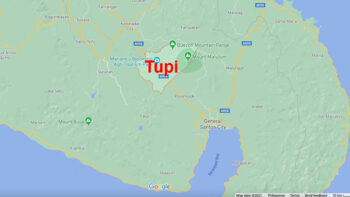Francis A. Domingo, head of POEA’s Mindanao office, said it is a well-deserved hike considering that the female domestic helpers, now called by the government as "household workers," are most vulnerable amid the long working hours, abuse and maltreatment they get from their employers.
Before Dec. 16, contracts signed here on behalf of the contract workers by agencies provide for a $200 minimum monthly salary.
The increase was stipulated in the POEA governing board resolution signed on Oct. 24.
The resolution cited that the household workers deployed overseas consistently comprise a big portion of the country's annual deployment.
The resolution also said that in addition to the increase, the workers could receive additional compensation if they have certified skills competencies and are familiar with the culture and language of their employers and host country.
The resolution required the household workers to secure a certificate of competency from the Technical Education and Skills and Development Authority (TESDA), which will issue a National Certificate for Household Service Workers.
The certificate will attest to the skills qualification, an added protection, the resolution stated, to the interest and welfare of the overseas workers. The certificate is in addition to the workers' language and culture orientation course.
The board issued that the workers' value-added skills and familiarity to language and culture of their host country should be "recognized and accurately compensated".
Recruitment agencies have opposed the increase in a letter to POEA Manila last month.
The Federated Association of Manpower Exporters (FAME) and the Philippine Association of Services Exporters, Inc. (PASEI) said the raise may affect the deployment of Filipino household workers.
They said the increase will result to losing the country's market to workers from Sri Lanka, Indonesia, Vietnam and even Laos.
Domingo said they will also penalize recruitment agencies that allow contract substitution. Reports say many Filipino domestic helpers are paid much lower than the amount they signed in their employment contract.
The board, in a separate resolution, also decided to return to 25 years old the minimum age of household workers deployed abroad. The decision was based on the reported unabated abuses and maltreatments against the workers
The decision was done, the resolution stated, to improve the preparedness and maturity of the household workers for their maximum protection.
Twelve years ago, the minimum age was 25 until the board lowered the required age to 21 years old in 1996 and to 18 years old in 2001.
